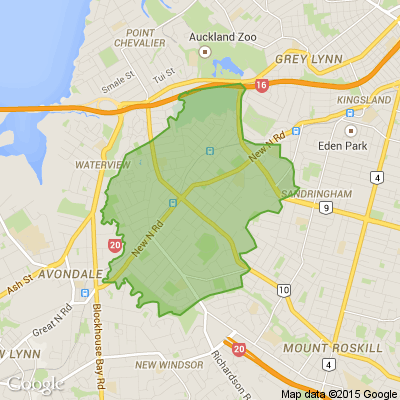100-day plan: The 49 actions Govt pledges to act on
1. Stop work on the Income Insurance Scheme.
2. Stop work on Industry Transformation Plans.
3. Stop work on the Lake Onslow pumped hydro scheme.
4. Begin efforts to double renewable energy production, including a NPS on Renewable Electricity Generation.
5. Withdraw central government from Let’s Get Wellington Moving (LGWM).
6. Meet with councils and communities to establish regional requirements for recovery from Cyclone Gabrielle and other recent major flooding events.
7. Make any additional Orders in Council needed to speed up cyclone and flood recovery efforts.
8. Start reducing public sector expenditure, including consultant and contractor expenditure.
9. Introduce legislation to narrow the Reserve Bank’s mandate to price stability.
10. Introduce legislation to remove the Auckland Fuel Tax.
11. Cancel fuel tax hikes.
12. Begin work on a new GPS reflecting the new Roads of National Significance and new public transport priorities.
13. Repeal the Clean Car Discount scheme by 31 December 2023.
14. Stop blanket speed limit reductions and start work on replacing the Land Transport Rule: Setting of Speed Limits 2022.
15. Stop central government work on the Auckland Light Rail project.
16. Repeal the Fair Pay Agreement legislation.
17. Introduce legislation to restore 90-day trial periods for all businesses.
18. Start work to improve the quality of regulation.
19. Begin work on a National Infrastructure Agency.
20. Introduce legislation to repeal the Water Services Entities Act 2022.
21. Repeal the Spatial Planning and Natural and Built Environment Act and introduce a fast-track consenting regime.
22. Begin to cease implementation of new Significant Natural Areas and seek advice on operation of the areas.
23. Take policy decisions to amend the Overseas Investment Act 2005 to make it easier for build-to-rent housing to be developed in New Zealand.
24. Begin work to enable more houses to be built, by implementing the Going for Housing Growth policy and making the Medium Density Residential Standards optional for councils.
Restore law and order
==================
25. Abolish the previous Government’s prisoner reduction target.
26. Introduce legislation to ban gang patches, stop gang members gathering in public, and stop known gang offenders from communicating with one another.
27. Give Police greater powers to search gang members for firearms and make gang membership an aggravating factor at sentencing.
28. Stop taxpayer funding for section 27 cultural reports.
29. Introduce legislation to extend eligibility to offence-based rehabilitation programmes to remand prisoners.
30. Begin work to crack down on serious youth offending.
31. Enable more virtual participation in court proceedings.
32. Begin to repeal and replace Part 6 of the Arms Act 1983 relating to clubs and ranges.
Deliver better public services
========================e
33. Stop all work on He Puapua.
34. Improve security for the health workforce in hospital emergency departments.
35. Sign an MoU with Waikato University to progress a third medical school.
36. By 1 December 2023, lodge a reservation against adopting amendments to WHO health regulations to allow the government to consider these against a “national interest test”.
37. Require primary and intermediate schools to teach an hour of reading, writing and maths per day starting in 2024.
38. Ban the use of cellphones in schools.
39. Appoint an Expert Group to redesign the English and maths curricula for primary school students.
40. Begin disestablishing Te Pukenga.
41. Begin work on delivering better public services and strengthening democracy.
42. Set five major targets for health system, including for wait times and cancer treatment.
43. Introduce legislation to disestablish the Māori Health Authority.
44. Take first steps to extend free breast cancer screening to those aged up to 74.
45. Repeal amendments to the Smokefree Environments and Regulated Products Act 1990 and regulations.
46. Allow the sale of cold medication containing pseudoephedrine.
47. Begin work to repeal the Therapeutics Products Act 2023.
48. Establish a priority one category on the social housing waitlist to move families out of emergency housing into permanent homes more quickly.
49. Commission an independent review into Kāinga Ora’s financial situation, procurement, and asset management.
===========================================
www.nzherald.co.nz...
============================================
Dry cleaners mt Roskill
Hello our fellow neighbors I was hoping someone would know where the old dry cleaners we had up at the lights on dominion road have moved to?? I was out of town and when I came back they were gone .... I had some items that I would really love to get back but if only I new where they moved to or how to get In Touch with the owners to see what they did with our clothes if they closed down or moved elsewhere? Any updates or news about it would be amazing neighbors. Have a great day
Poll: As a customer, what do you think about automation?
The Press investigates the growing reliance on your unpaid labour.
Automation (or the “unpaid shift”) is often described as efficient ... but it tends to benefit employers more than consumers.
We want to know: What do you think about automation?
Are you for, or against?

-
9.4% For. Self-service is less frustrating and convenient.
-
43.6% I want to be able to choose.
-
47.1% Against. I want to deal with people.
New BEGINNERS LINEDANCING CLASS
Epsom Methodist church
12 pah Rd GREENWOODS cnr. Epsom
Monday 9th February 7pm - 9pm
Tuesday 10th February 10am -11am
Just turn up on the day






 Loading…
Loading…